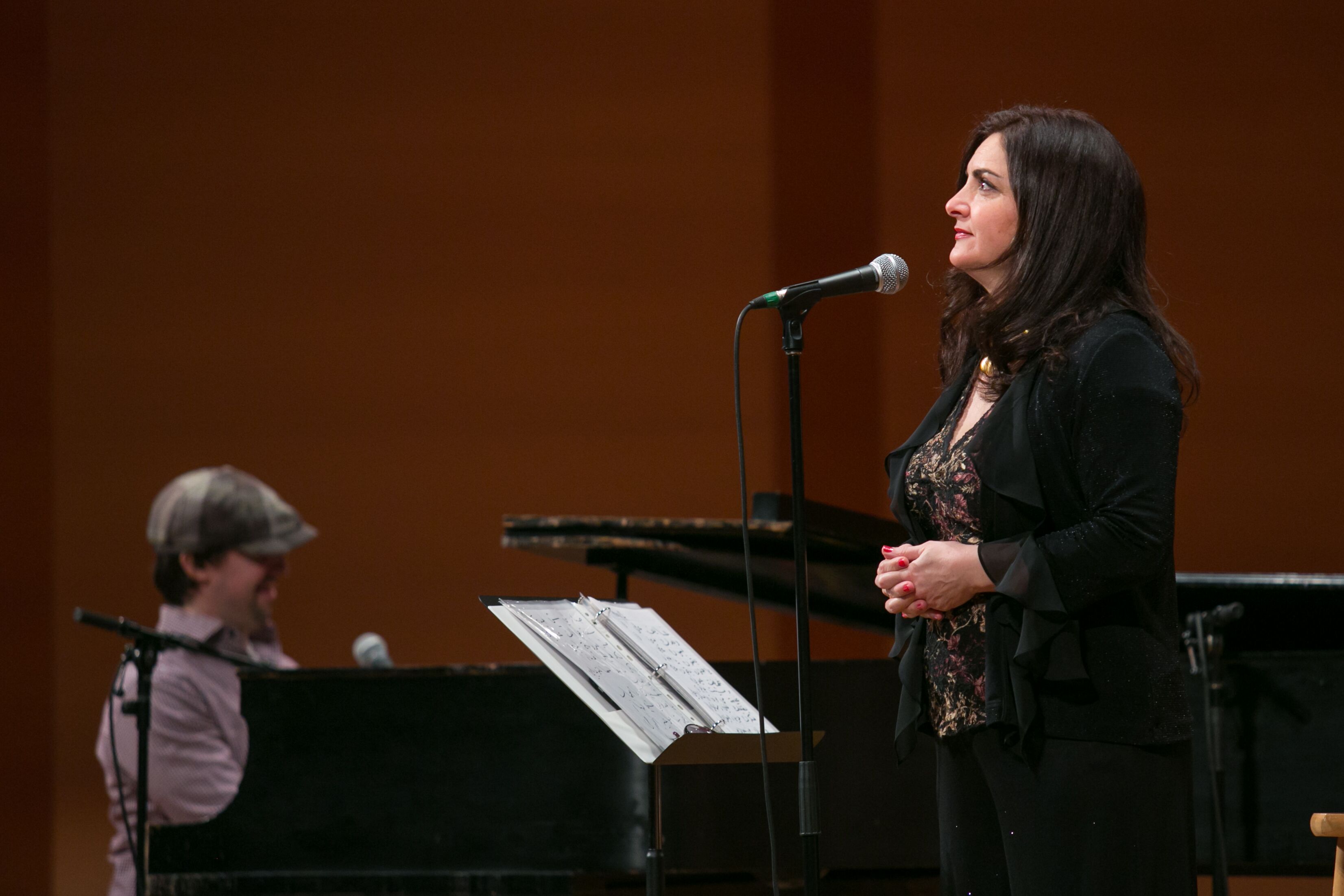Syrian vocalist Gaida made her Connecticut debut at Crowell Concert Hall last Friday, Feb. 5.

Since its construction in 1973, the Crowell Concert Hall has seen a multitude of performances, but last Friday was truly a first of many. Crowds rushed to their seats to hear the unique vocal and musical style of Gaida and her band. A few minutes after 8 p.m., Center for the Arts Director (and newly appointed Executive Director of Jacob’s Pillow Dance Festival) Pamela Tatge stepped on stage to introduce the Syrian singer. During her introduction, Tatge spoke of Gaida’s musical career and of the awe of New York audiences upon hearing her voice for the first time. She stressed the importance of Gaida as an artist, as well as her role in paving the way for female Muslim performers.
Tatge then offered the stage to Gaida, whose voice voice came across as warm and gentle as she introduced her band, which consisted of George Dulin on piano, Zafer Tawil on oud and percussion, Jennifer Vincent on bass, and Tony De Vivo on drums. As she began the first piece, which she announced was a cover of a traditional Syrian song, her rich, ornamented vocal tones filled the room. This vocal quality, along with the pulsating rhythms created by the musicians, produced a vibrant, colorful texture, which was further heightened as Gaida invited the audience to join her in clapping along to the beat. After a while, I found myself clapping, foot stamping, and moving my knees.
Gaida upheld this vivacious rhythm throughout several pieces, including some of her own compositions. Finally, she began to speak of more serious matters. Slowing things down a little, she recounted a recent experience when she found herself locked out of her apartment. She spoke of how upset, lost, and worried she felt.
“It felt hopeless, like everything had been taken away from me,” Gaida said. “All of my things were inside and I was on the outside.”
Gaida then related this experience to current events and her native country.
“I wondered, ‘What if this happened forever?’” she recalled. “When I thought of the Syrian refugees having to leave their homes, without warning in the middle of the night, then I knew being locked outside my apartment for a few hours wasn’t so bad.”
Her statement was followed up by a composition that she wrote for these refugees that night.
Gaida and her band then moved on, transitioning their style into a contrast of traditional Arabic vocals and jazz music. Maintaining this blend throughout the remainder of the concert, Gaida presented covers of songs by artists such as Bob Dylan, singing entire vocal lines in Arabic. She began to play a kind of guessing game in which she would first perform the song in Arabic and then ask the audience to guess what it was.
The concert then came to an end with more vibrant pieces similar to those played at the beginning, during which the audience rose to their feet and started clapping their hands. After Gaida and her band had left the stage, Tatge returned and announced that there were refreshments available, and that copies of Gaida’s CDs were on sale with a percentage of the proceeds going to support funds for Syrian refugees.
“Gaida: In Concert” was not only a unique musical performance, but it was a truly uplifting experience. It was wonderful to see some positivity come from such a troubled area of the world and to see Gaida making use of her stunning vocals as a form of support for those seeking refuge.
This article has been updated to reflect that this was not just Gaida’s Wesleyan debut but her Connecticut debut, and that she did not appear in traditional Muslim dress.


Leave a Reply